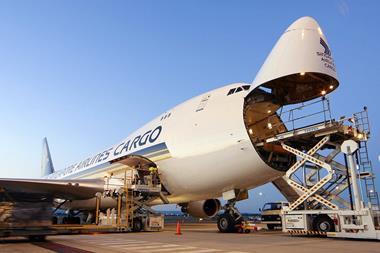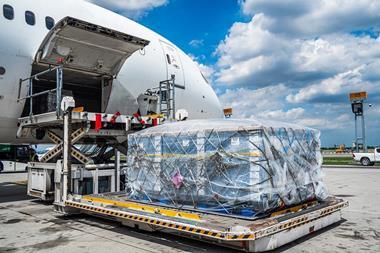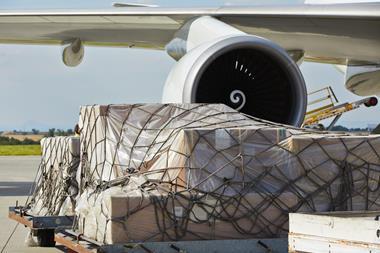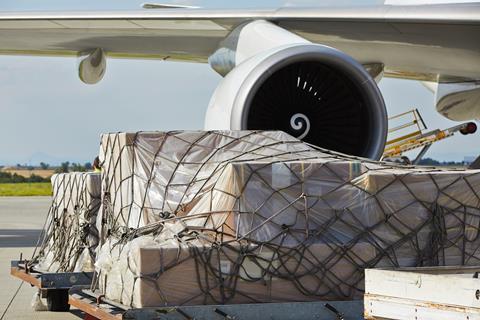
The post-peak season drop-off in air cargo demand out of Asia Pacific is not as strong as some had feared, according to data provider WorldACD.
The data provider said that it had analysed the demand drop between the peak season high in December and the early January low after “some air cargo industry executives have expressed concern this month about how steeply tonnages (mostly e-commerce) from Asia Pacific have dropped off since their peak in mid-December, especially to Europe”.
WorldACD figures show that the 2023 and 2024 peak seasons were both “extremely strong” out of Asia and a seasonal lull followed. While this year’s lull is slightly stronger than a year ago, the difference is "not so significantly greater than last winter”.
In 2023 the decline between the peak and the first week of January in 2024 stood at 30% while this year the drop between the two periods was only slightly higher at 33%.
“By week three in 2024, Asia Pacific tonnages had rebounded to around 95% of their weekly peak levels in December, compared with around 90% this year in week three.”
However, the analyst’s figures confirmed that Europe is recovering more slowly than it did last year. This may be down to the strength of the market last year, when the Red Sea crisis was in its early stages and e-commerce demand was taking off, and the timing of the Lunar New Year holiday.
“Last winter, Asia Pacific to Europe (and China to Europe) tonnages in week three had already rebounded back above their levels in weeks 48, 49, and 50, whereas this winter in week three Asia Pacific to Europe volumes are still well below (-20%) their levels achieved in week 49, with China to Europe tonnages about -15% below their peak.
"However, that mostly reflects their extraordinarily high levels in the final weeks of 2024. The comparisons are also complicated by the timings of Lunar New Year, which comes relatively early in 2025 on 29 January compared with 10 February in 2024.”
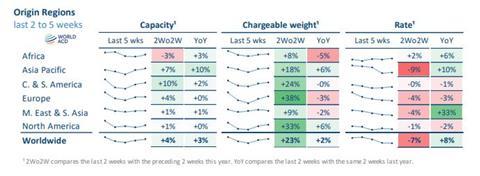
Overall, air cargo demand edged up last week as companies looked to move shipments ahead of week-long factory closures in China and other areas of Asia for the Lunar New Year celebrations.
WorldACD figures show that in the week ending 19 January, air cargo demand increased by 8% week on week following a 29% increase the week before.
An early Lunar New Year - this year running from 29 January - means the seasonal post-Christmas lull in demand has been curtailed.
WorldACD said that worldwide tonnages in week three were back up to around 90% of their levels in the last full week before Christmas.
Demand out of the Asia Pacific region was up 5% week on week in week three and is 5% above the year-ago level.
However, while demand has increased, average global rates remained more or less stable at $2.43 per kg in week three but are around 7% higher than a year ago.










